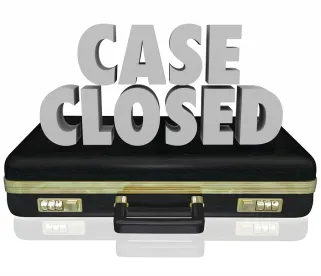In Steinberg on behalf of Hortonworks, Inc. v. Bearden, C.A. No. 2017-0286-AGB (Del. Ch. May 30, 2018), the Delaware Court of Chancery granted the defendants’ motion to dismiss the stockholder plaintiff’s derivative claims for breach of fiduciary duties under Court of Chancery Rule 23.1, because the plaintiff failed to make a pre-suit demand or demonstrate that doing so would be futile. The Court found that the plaintiff failed to plead particularized facts sufficient to raise reasonable doubt that a majority of the directors on the Hortonworks, Inc. board could have exercised their independent and disinterested business judgment in responding to a pre-suit demand.
Chaile Steinberg (“Plaintiff”), a stockholder of Hortonworks, Inc. (the “Company”), alleges that three Hortonworks board members and two officers (“Defendants”) breached their fiduciary duties by making or permitting to be made several materially false and misleading statements about the Company’s financial condition. Specifically, Plaintiff alleges Defendants knowingly misled the market on four occasions by stating that the Company did not need capital infusions, when the Company was in fact in need of cash and the seven-member board of directors (the “Board”) was privately considering raising additional funds through a secondary public offering.
On August 13, 2015, the Company filed a Form 10-Q for the second quarter containing a statement asserting the Company had sufficient cash to meet its “working capital and capital expenditure requirements.” The Hortonworks Audit Committee, consisting of three directors, approved the Form 10-Q, and the Company’s CEO and CFO both certified that the 10-Q did not contain untrue statements of material fact. One week later, the Board authorized the Company to prepare for a secondary public offering following a presentation concerning investor desire for liquidity. On November 4, 2015, the Company’s CEO made positive statements concerning the Company’s revenue growth. On November 12, 2015, the Company filed a Form 10-Q reporting on its third quarter containing the same statements and certifications as the second quarter 10-Q. On December 1, 2015, the CEO publicly asserted that the Company was comfortable operating on its current cash model. On January 13, 2016, the Board again authorized preparations for a secondary offering. On January 15, 2016, Hortonworks filed a Form S-3 and issued a press release announcing its secondary public offering for the principal purpose of raising additional capital.
On April 13, 2017, Plaintiff filed a derivative suit for breach of fiduciary duties. Defendants moved to dismiss the complaint for failure to state a claim under Rule 12(b)(6) and Chancery Court Rule 23.1, which requires a plaintiff to either make a pre-suit demand on the defendant or demonstrate that such a demand is futile. Under Chancery Court Rule 23.1, a plaintiff must plead particularized facts showing demand is futile in order to avoid dismissal. Delaware law establishes that demand is futile when a majority of the directors upon whom demand would be made are incapable of making an impartial decision regarding the litigation.
Delaware courts apply the Rales test for demand futility when 1) the plaintiff challenges a decision approved by less than half of the directors, or 2) the plaintiff alleges that directors failed to act. Allegations that directors failed in their oversight duties or made false or misleading statements in public filings are generally considered allegations concerning a failure to act. For such allegations, the Rales test requires a plaintiff to make particularized allegations giving rise to reasonable doubt as to the independence or disinterestedness of a majority of the board.
The Court determined that each of the CEO’s statements were individual decisions, not decisions approved by the majority of the Board. The Court also found that because Plaintiff alleged there were misstatements in the 10-Qs, Plaintiff was alleging a failure in oversight.
Applying Rales, the Court determined demand was not excused because Plaintiff could neither establish that a majority of the Board stood to gain personal financial benefit nor that a majority of the Board faced a “substantial threat” of personal liability. Plaintiff failed to argue that any Board members stood to gain personal financial benefit. Furthermore, because the Company’s certificate of incorporation contains an exculpatory clause under Delaware General Corporation Law Section 102(b)(7), Plaintiff needed to demonstrate that a majority of the Board acted in bad faith to establish a substantial likelihood of personal liability.
Relying on In re Citigroup Inc. Shareholder Derivative Litigation, 964 A.2d 106, the Court determined Plaintiff failed to demonstrate the Board faced a “substantial threat” of personal liability because she failed to show: Board involvement in the preparation of the Form 10-Q disclosures; director belief that the statements were false; or that the directors failed to be adequately informed. The Court found that at least six of the seven directors would have been able to consider the demand impartially.
The Court granted the Defendants’ motion to dismiss the Plaintiff’s derivative claims for breach of fiduciary duties because the Plaintiff failed to plead particularized facts sufficient to raise reasonable doubt that a majority of the directors on the Board could have exercised their independent and disinterested business judgment in responding to a pre-suit demand.
Chaile Steinberg, v. Robert G. Bearden, et al., and Hortonworks, Inc., n…




 />i
/>i

